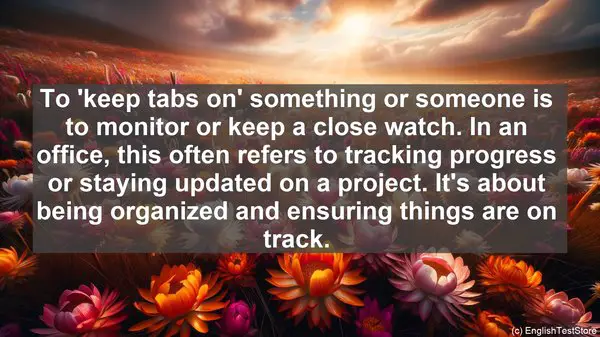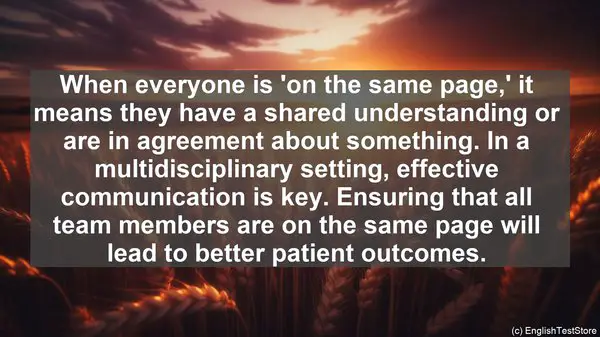Introduction: The Power of Idioms in Office Communication
In today’s lesson , we’ll explore the fascinating world of English idioms. Idioms are not just phrases; they’re a window into a culture and a way of expressing ideas in a concise and often colorful manner. In an office setting, using idioms can make your communication more effective and engaging. So, let’s dive into the top 10 idioms every office clerk should know!
1. ‘Get the Ball Rolling’
When you ‘get the ball rolling,’ you initiate an action or a project. It’s that crucial first step that sets everything in motion. So, if you’re in a meeting and things seem stagnant, don’t hesitate to ‘get the ball rolling’ by suggesting an idea or outlining a plan.
2. ‘Put on a Brave Face’
In the office, you’ll face challenges and setbacks. But it’s important to ‘put on a brave face.’ This means maintaining a positive and confident demeanor, even in difficult situations. It shows resilience and inspires others to do the same.
3. ‘Go the Extra Mile’
To ‘go the extra mile’ means to put in additional effort or do more than what is expected. In the workplace, this can set you apart and demonstrate your commitment. Whether it’s staying late to finish a project or volunteering for a task, ‘going the extra mile’ can lead to recognition and opportunities.
4. ‘Keep an Eye Out’
When you ‘keep an eye out,’ you’re actively watching or looking for something. In an office, this often refers to being vigilant about potential issues or opportunities. It’s about staying alert and aware of what’s happening around you.
5. ‘Get the Hang of’
When you ‘get the hang of’ something, you’ve mastered or understood it. In a new job or when learning a new skill, there’s always a learning curve. But with time and practice, you’ll ‘get the hang of’ it and become more proficient.
6. ‘Put Someone on the Spot’
To ‘put someone on the spot’ is to place them in a situation where they have to respond or perform immediately, often without much preparation. It can be a way to test someone’s knowledge or see how they handle pressure. However, it’s essential to use this idiom judiciously and respectfully.
7. ‘Hit the Ground Running’
When you ‘hit the ground running,’ you start a new project or job with great energy and enthusiasm. It’s about being proactive and productive from the very beginning. Employers value employees who can ‘hit the ground running.’

8. ‘Keep Tabs On’
To ‘keep tabs on’ something or someone is to monitor or keep a close watch. In an office, this often refers to tracking progress or staying updated on a project. It’s about being organized and ensuring things are on track.
9. ‘In the Loop’
When you’re ‘in the loop,’ you’re part of a group or have access to information. It’s about being well-informed and involved. In an office, being ‘in the loop’ ensures you’re aware of important updates and can contribute effectively.
10. ‘Wrap Things Up’
When you ‘wrap things up,’ you’re finishing or completing tasks. It’s about bringing a project to a close or concluding a meeting. ‘Wrapping things up’ in a timely and efficient manner is a valuable skill in any office setting.

Conclusion: Mastering Idioms for Effective Office Communication
English idioms are not just linguistic quirks; they’re tools for effective communication. By incorporating these 10 idioms into your workplace conversations, you’ll not only enhance your language skills but also make your communication more engaging and impactful. So, keep learning, keep practicing, and soon, you’ll be an idiom expert in the office!
















